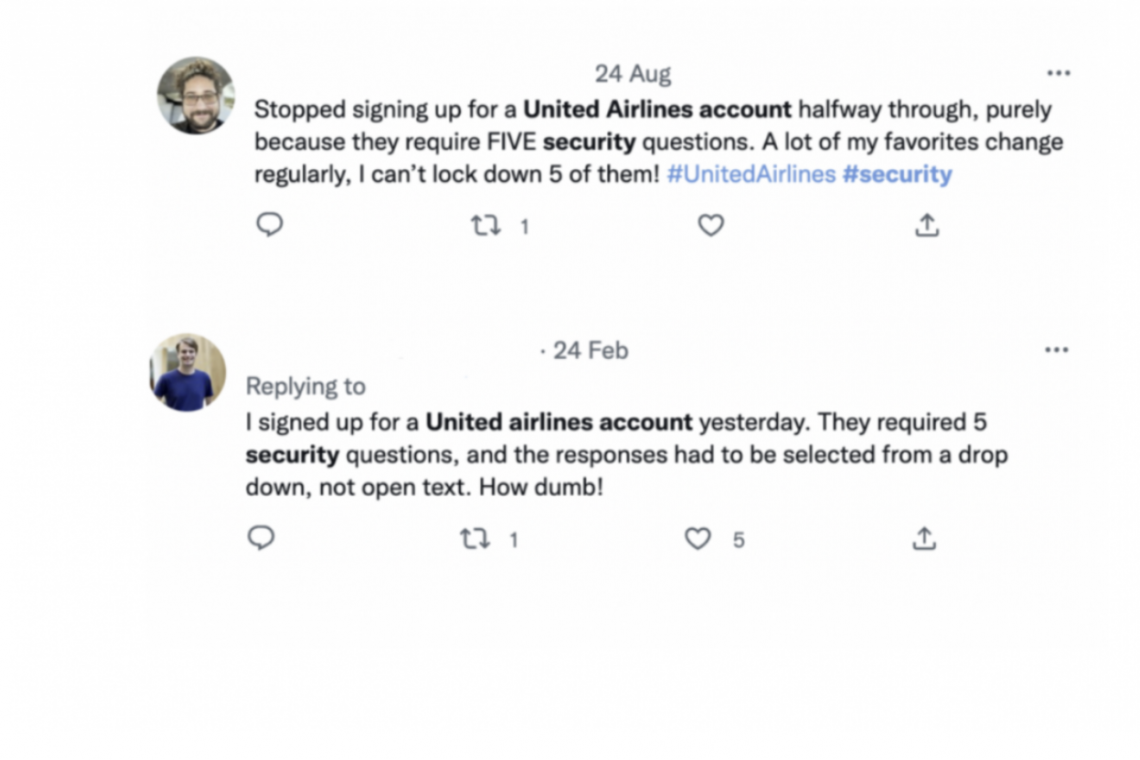We had a chat with Roger Dooley at the neuromarketing world forum in Berlin for our podcast. He’s a well known author, Forbes columnist, podcaster and big advocate of friction reduction. He wrote a book on the subject called ‘Friction the untapped force that can be your most powerful advantage’. You might ask yourself, why is friction reduction so important? Well, it turns out that 80% of online shopping cart abandonment is related to friction.
What do we mean with Friction?
The idea of friction is about how (unnecessary) effort affects human behavior. If we want to guide our human behavior, we need to remove as much effort (friction) as possible. Silicon valley has used the term friction for a while now for describing unnecessary steps when signing up for a subscription or app.
So the concept of friction has been around for a while, yet it seems that many companies, organizations and governmental institutions are not taking it at heart. The biggest focus of reducing friction is improving customer experience to increase conversions. Companies who have managed to remove unnecessary effort have become very successful.
Amazon has been focussing relentlessly on making things as easy as possible and became one of the biggest companies on the planet. Zoom blew away their competitors during the pandemic because of how easy their signup process was. Even corporate IT people from Microsoft suddenly had to get thousands of employees online for video conferencing right away and they decided to use zoom.

Zoom’s mission statement is: ‘make communications frictionless’. When the pandemic started, their frictionless approach turned them into the obvious choice. It shows the potential success that comes with less friction. However, a lot of companies are not doing well in the battle against friction.
For example, a big hotel chain requires customers to solve multiple captchas before booking, which is suboptimal from a customer experience level which leads to lower conversions. People underestimate and don't put enough thought into the consequences of extra effort.

Another example is United Airlines, which requires customers to set up 5 security questions for their account. That in itself is annoying but it gets worse, you can only choose an answer from a preselected list. Surprisingly United still haven't solved this and thus people are still complaining, have a look at some of the angry Tweets we found below, some stating they didn’t want to sign up anymore which clearly demonstrates how friction impacts conversions.


Less is more
So friction can be anything that overcomplicates, extends or interferes with a process. Some companies understand it while others don’t. Apple has always been committed to making products simple and elegant, while also being easy to use. They go above and beyond to make life easy for customers, even if it means hiding functionality the majority doesn’t use.
This approach has been present at Apple for a long time. Back in the day, Amazon had a patent on a technology that made it possible to buy online with one click. Steve Jobs was so impressed by it that he decided to pay Amazon big money so they could use it themselves. So if Jeff Bezos and Steve Jobs pay big bucks to reduce friction, you start to wonder why other companies don’t seem to have friction on their priority list.
Ideally the customer journey should be one slippery slide, once you’re moving you can’t stop until you reach the bottom where the conversion occurs. This is not the case for the majority, 80% of online shopping cart abandonment is related to friction, you have to create an account, enter your credit card details manually, select an address, etc. Smart companies want none of that, Amazon for example never logs you out, even if you leave the website and come back the next day.
Trust
The same goes for the Amazon return orders, they trust their customers and return credit as soon as the box has been dropped off at a package point. It works both ways because by trusting customers, customers start to trust Amazon more.

Amazon is one of the few companies in the Netherlands that will not require you to authenticate your payment, they’re taking the risk if things go wrong, but they’re willing to take that risk because they believe that the reduction in friction will bring more conversions which will make up for the loss of security.
The law of least effort
People will always gravitate towards the option that takes the least effort. Roger Dooley conducted an experiment with his dog who’s highly motivated by food. He gave him the option to choose between 3 different food puzzles with varying difficulty. The dog always went with the easiest available option. So imagine how easy the choice will be for customers and employees who are unmotivated.
Localizing the disconnect
So why are there so many organizations who haven’t managed to reduce friction and effort within their customer journey? The disconnect seems to occur at a business leader level, they don’t have a behavioral science background and they receive advice from different experts within their organization; lawyers, security officers, IT technicians etc. Many business executives don’t have the ability to uncover the true impact of friction reduction, so they’ll follow the safe option and don’t take the risk of changing.
A great example Roger Doleey gave was about a financial controller for a construction company with construction sites throughout the US. They had a small airplane at their disposal to quickly travel between the different construction sites. The controller dreaded seeing the pilot of the plane coming to the office, he always had requests for new pieces of equipment. He would ask: do we really need this? the pilot would say: do you want to crash? The controller could then only listen and approve the pilots request, he didn’t know enough about airplanes to judge if it was really needed.

This exact problem is occurring to the business executives, with a lack of knowledge of each specific department to make a calculated decision. If we would only follow the advice of lawyers, nothing would get done because it’s their job to cover all possible risks. The reality is that compromises have to be made to reduce friction.
Reducing friction in your own organization
So as we now know, friction reduction would benefit both customers and employees. But where and how do we start implementing it in our organization?
Roger Dooley recommends you to take small steps at the start to get the ball rolling. If you’re a junior-level employee, you could pick some small battles first because you’re not going to be able to push through a multimillion-dollar project.
There are so many small things that could be done for minimal investment which will prove the value of friction reduction. For example, rules and layers of approval where managers have to sign off on things but don’t really check anyways therefore only adding delays.
Small victories will be reached if you can eliminate these. Changes will be noticeable in productivity numbers or conversion rates, then suddenly you will get the chance to really start your war on friction by taking on bigger projects since people have seen the potential.




.png)


